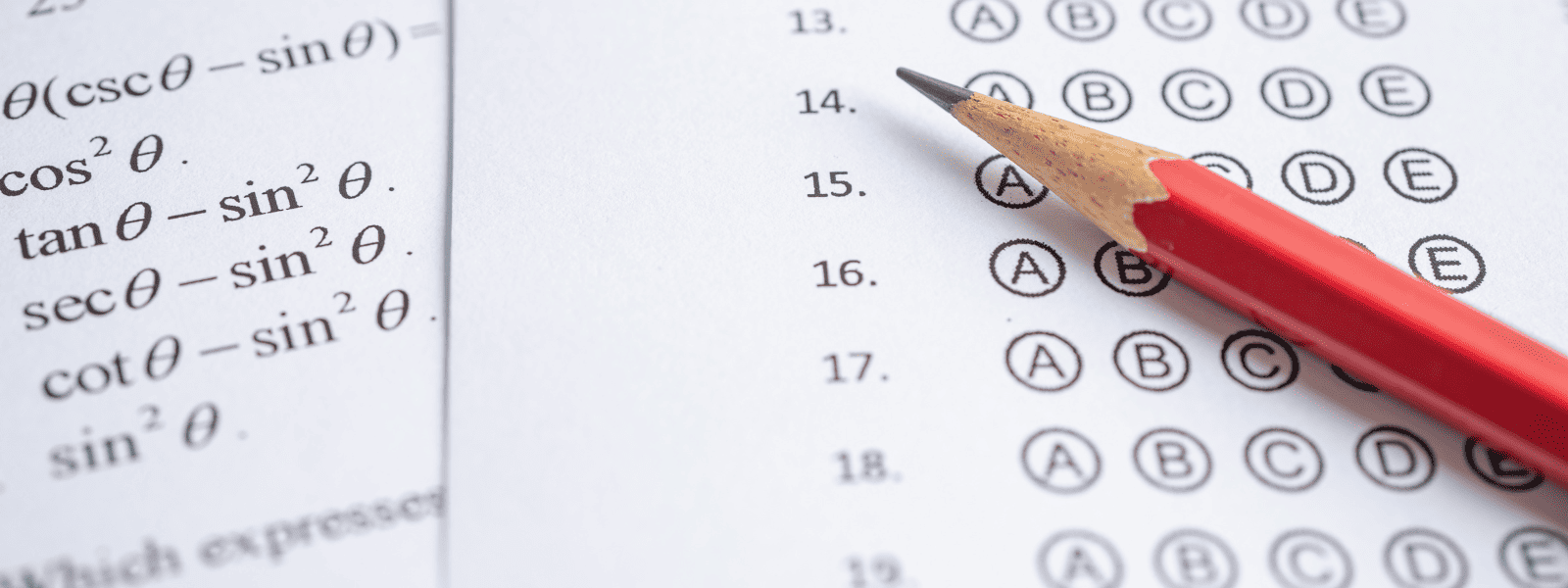Reasons for Test Anxiety: A Brain-Based Perspective
Test anxiety is a common challenge faced by many students, impacting their ability to perform at their best during exams. This phenomenon can be attributed to various factors, some of which are deeply rooted in the brain’s functioning.
If you’re frustrated by your student’s poor grades, even when they seem to know the content…
Or if they seem to “freeze” on test day, despite all the accommodations and efforts you put into preparing them…
Or if you are just wondering what else you can do to unlock your child’s brain to help them get the grades that match their effort…
Here are some important places to look:
Some Possible Causes of Test Anxiety:
Knowledge vs. Mastery
One of the key factors that contributes to test anxiety is the distinction between knowledge and mastery. While possessing the necessary information is crucial, true mastery involves the ability to apply that knowledge under pressure.
Test anxiety often happens when a student comes into a test confident that they know the material, but then when it comes to using that knowledge to answer the test questions, they get stuck almost immediately. This creates a downward spiral of lack of confidence, feeling flustered or overwhelmed, and, ultimately, under-performing on the test.
What to do about it: Active studying is the key here! Students who just memorize study guides are probably not going to do as well on the test as those who practice applying the knowledge. This looks like…
- Having multiple study sessions (not just the night before) to exercise that recall
- Engaging with material to create a new output (instead of just reviewing notes, this means making flash cards, practice tests, mind maps, or other ways of interacting with the material)
- For some subjects, it just means doing the problems. For math, chemistry, and other problem-based subjects, reviewing past problems isn’t enough – you have to just do it.
Learned Responses and Fear of Failure
Over time, individuals may develop learned responses to stress and fear of failure, further exacerbating test anxiety. These responses can hinder the brain’s optimal performance during exams. For example, students who are repeatedly penalized for giving wrong answers or who face inordinate pressure to do well will understandably feel more anxious on test-day.
What to do about it: If your student just freezes or struggles to even get started on tests because they’re afraid of getting an answer wrong, it’s important to unpack why they have this response. While a lack of confidence can sometimes be rooted in cognitive weaknesses, often cognitive behavioral therapy or other approaches are also essential to unpack what’s really going on in their minds on test day.
Slow Processing Speed
For some students, slow processing speed can contribute significantly to test anxiety. The brain’s ability to quickly process information is crucial in timed exams, and a slower processing speed may lead to difficulty completing tasks within the allotted time. This often looks like:
- Students rushing through tests without really reading the questions because they’re worried about finishing on time
- Doing ok on the first part of the test but going downhill on later questions because they’re running out of time
- Getting flustered or visually overwhelmed by all the questions in front of them at once
What to do about it: Processing speed is an essential skill that impacts every area of life. While it’s tempting to just accommodate this weakness by providing extra time on tests, it’s important to think longer-term. Will this accommodation allow a struggle to continue unaddressed longer than necessary?
Processing speed is a skill that can be built. Rather than just giving your student more time on each test and assignment, targeting this weakness can set them up to be able to think faster and more efficiently in all areas of life.
Other Cognitive Weaknesses Related to Test Anxiety
These are only the beginning. Reasons for test anxiety are truly unique to all individuals, but they are often linked to various cognitive weaknesses. Poor attention, working memory, reading, comprehension, visual processing, or executive functioning skills all contribute to struggling on tests and exams.
The good news?
Instead of just guessing what’s causing your student’s struggles on tests, you can know! Our cognitive assessment will shine a light on each of these cognitive areas to help you know which are strong & weak for your student. Then, we’ll help you understand how that’s impacting not only their performance on tests, but also other areas of life.







